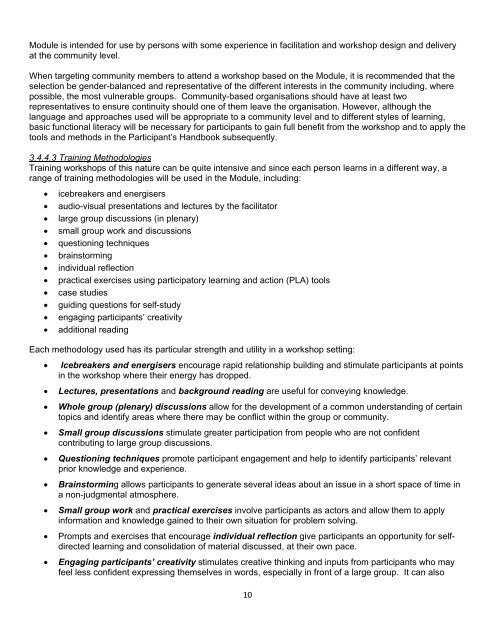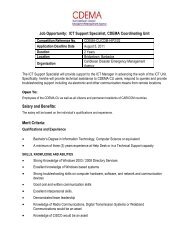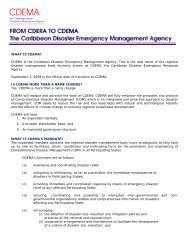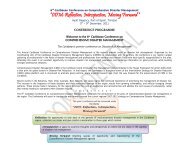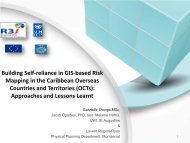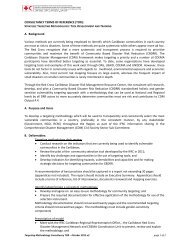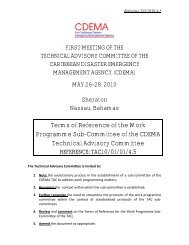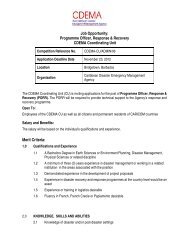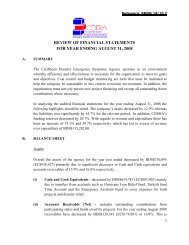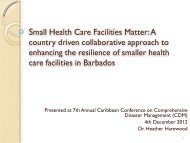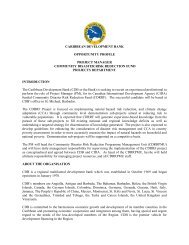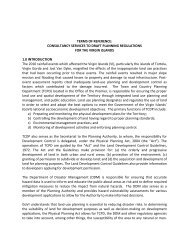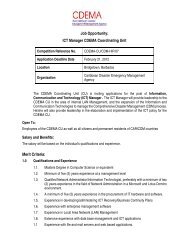Create successful ePaper yourself
Turn your PDF publications into a flip-book with our unique Google optimized e-Paper software.
Module is intended for use by persons with some experience in facilitation and workshop design and delivery<br />
at the community level.<br />
When targeting community members to attend a workshop based on the Module, it is recommended that the<br />
selection be gender-balanced and representative of the different interests in the community including, where<br />
possible, the most vulnerable groups. Community-based organisations should have at least two<br />
representatives to ensure continuity should one of them leave the organisation. However, although the<br />
language and approaches used will be appropriate to a community level and to different styles of learning,<br />
basic functional literacy will be necessary for participants to gain full benefit from the workshop and to apply the<br />
tools and methods in the Participant’s Handbook subsequently.<br />
3.4.4.3 Training Methodologies<br />
Training workshops of this nature can be quite intensive and since each person learns in a different way, a<br />
range of training methodologies will be used in the Module, including:<br />
icebreakers and energisers<br />
audio-visual presentations and lectures by the facilitator<br />
large group discussions (in plenary)<br />
small group work and discussions<br />
questioning techniques<br />
brainstorming<br />
individual reflection<br />
practical exercises using participatory learning and action (PLA) tools<br />
case studies<br />
guiding questions for self-study<br />
engaging participants’ creativity<br />
additional reading<br />
Each methodology used has its particular strength and utility in a workshop setting:<br />
<br />
<br />
<br />
<br />
<br />
<br />
<br />
<br />
<br />
Icebreakers and energisers encourage rapid relationship building and stimulate participants at points<br />
in the workshop where their energy has dropped.<br />
Lectures, presentations and background reading are useful for conveying knowledge.<br />
Whole group (plenary) discussions allow for the development of a common understanding of certain<br />
topics and identify areas where there may be conflict within the group or community.<br />
Small group discussions stimulate greater participation from people who are not confident<br />
contributing to large group discussions.<br />
Questioning techniques promote participant engagement and help to identify participants’ relevant<br />
prior knowledge and experience.<br />
Brainstorming allows participants to generate several ideas about an issue in a short space of time in<br />
a non-judgmental atmosphere.<br />
Small group work and practical exercises involve participants as actors and allow them to apply<br />
information and knowledge gained to their own situation for problem solving.<br />
Prompts and exercises that encourage individual reflection give participants an opportunity for selfdirected<br />
learning and consolidation of material discussed, at their own pace.<br />
Engaging participants’ creativity stimulates creative thinking and inputs from participants who may<br />
feel less confident expressing themselves in words, especially in front of a large group. It can also<br />
10


